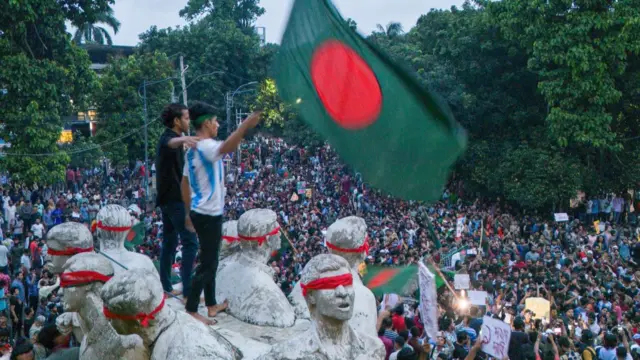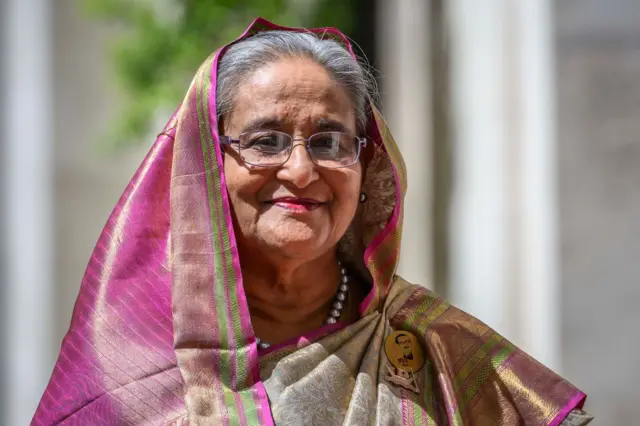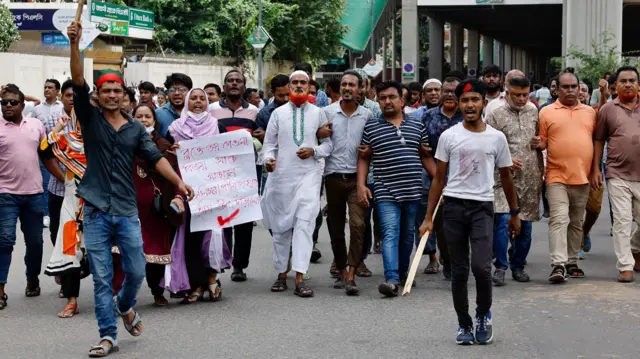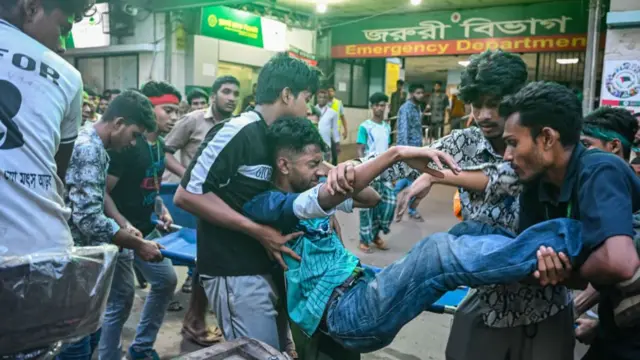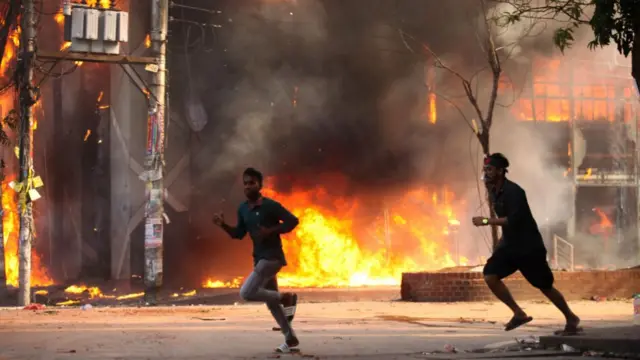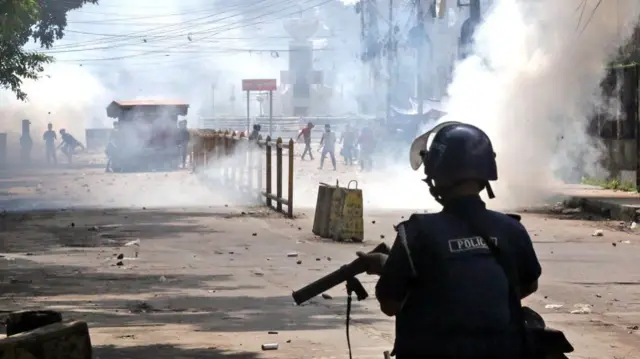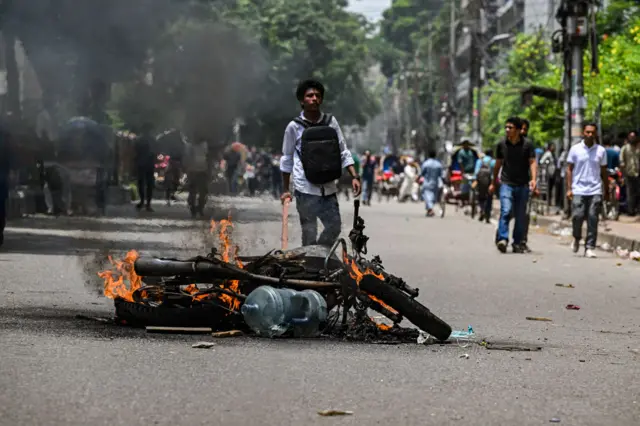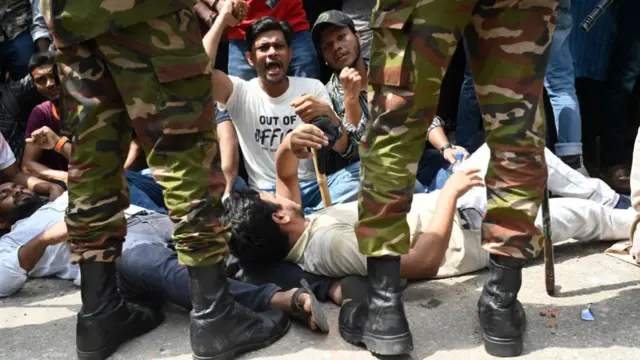Tens of thousands of students expected to turn out in Dhakapublished at 06:18 BST 5 August 2024
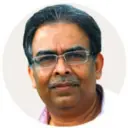 Soutik Biswas
Soutik Biswas
India Correspondent
I spoke on the phone to Sayem Faruk, who is part of a group of current and former students of Dhaka University.
He says things in Dhaka today are "very tense", adding that tens of thousands of students are expected to participate in today's planned protests.
"A lot of my friends and people from all walks of life are defying the curfew to [attend the protests]. People are coming in from outside Dhaka. People are sheltering protestors who have come from outside... it’s a grassroots movement," he said.
"There’s no transportation today. I live in a neighbourhood 13km (8 mi) away from Dhaka University. There are people who are walking 20km to the university. They are gathering in large groups and planning to walk all the way.
"Everything is shut. There is a non-cooperation movement. Schools, colleges, offices, courts are closed.”
Faruk added that students are expected to gather at around 14:00 (08:00 GMT), and will then decide on what action to take today.
